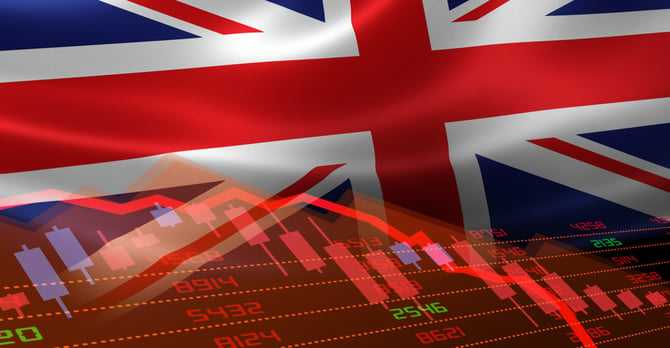UK Economy, Still Shaking Off The Pandemic, Faces More Trouble

The UK economy grew marginally in the second quarter of the year, rather than shrinking as previously had been estimated. However, data from the Office for National Statistics also showed that the UK is the only G7 economy that has not recovered fully from the pandemic, with GDP still 0.2% smaller than at the start of 2020.
According to the Bank of England (BOE), the economy is most likely already shrinking again, with inflation heading to a whopping 11%.
According to the Bank of England (BOE), the economy is most likely already shrinking again, with inflation heading to a whopping 11%.
Analysts believe the UK is struggling to grow and facing a likely deeper recession down the road. It may be a long time before it does recover, given the crisis caused by Prime Minister Liz Truss’ decision last week to announce massive unfunded tax cuts alongside a huge package of energy subsidies.
That gamble scared financial markets and sent borrowing costs for the government, businesses and households soaring. An emergency intervention by the BOE on Wednesday calmed markets and averted the collapse of some pension funds.
The Truss plan to boost growth backfired badly, with analysts now expecting that the British central bank will have to raise interest rates by 1.25% or even 1.5% by November to tackle its inflationary impact.
What does this mean for me?
What happens next is unclear. Truss and her finance minister Kwasi Kwarteng insisted last week that they would stick with their plan, but they have a very narrow window to convince investors that they can be trusted with the nation’s finances, with their political opponents sensing an opportunity.
More News
.webp)
Japan’s Rate Shift Is Rippling Through Global Bond Markets
2 weeks ago

China’s Growth Engine Stalls as Consumers and Investors Pull Back
3 weeks ago

Egypt’s Recovery Gains Traction as Household Pressure Lingers
4 weeks ago

OECD Warns AI and Tariffs Will Test the Global Economy
1 month ago

Zero Tariffs, Higher Drug Bills as US and UK Reset Pharma Trade
1 month ago

Catastrophe Bonds Go Global as Climate Risk Meets Yield Hunting
1 month ago
.webp)
Canada Shields Steel and Lumber Industries From Tariffs
1 month ago

Trump Drops Selected Tariffs in Response to Inflation Pressures
1 month ago